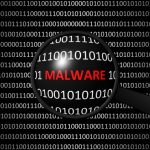How the pandemic has reinvigorated Emotet [Q&A]

The US Department of Homeland Security's Cybersecurity and Infrastructure Security Agency (CISA) has recently put out a warning concerning a surge in activity from the group behind the Emotet trojan.
Emotet has been around for some time and has mostly been associated with banking trojans, but this year’s upsurge in activity has seen it branch out into other areas.
Hospitals and healthcare hit by global wave of ransomware

October has seen a 71 percent increase in ransomware attacks against the healthcare sector in the US compared to the previous month.
Elsewhere in the world, in EMEA, attacks increased by 36 percent and by 33 percent in the APAC region, according to research from Check Point.
SASE will top the cybersecurity priority list in 2021 [Q&A]

COVID-19 has caused many industries to experience an economic downturn, but cybersecurity isn't one of them.
Rather, cybersecurity is taking on newfound or heightened importance within many companies, as cybercriminals continue to exploit the global health crisis and associated business disruption to prey on unsuspecting work-from-home employees.
Remote working heightens risk but businesses slow to adapt

A new study from SafeGuard Cyber seeks to understand how businesses rate their own security and compliance risks in the new digital reality.
Respondents were asked to effectively grade their adaptations to date, say what gaps still exist, and how they are planning for the future. 31 percent of respondents report their entire business process has changed and is still evolving, while 26 percent say they’ve rushed certain projects that were scheduled for later.
Email compromise attacks are on the increase as tactics shift
Business email compromise (BEC) attacks have increased in six out of eight industries according to a new report from Abnormal Security.
The overall volume of BEC attacks increased 15 percent from Q2 to Q3, but the energy industry experienced a massive 93 percent rise.
Malware levels drop as attacks become more targeted

Overall malware levels have shown a 39 percent decline over the last quarter as attackers have switched to a more targeted approach.
The third quarter threat intelligence report from SonicWall Capture Labs records a 40 percent surge in global ransomware, a 19 percent increase in intrusion attempts and a 30 percent rise in IoT malware.
The evolution of cloud native -- Kubernetes and beyond [Q&A]

Enterprises are expanding their view of 'cloud native' to be much more than simply deploying containers on Kubernetes in the Cloud.
A new report -- Cloud Native Adoption Trends 2020-2021 -- from Lightbend, the company behind the Scala programming language, sheds light on this trend. We spoke with Mark Brewer, CEO of the company to learn more about how developers and business leaders alike are looking higher up the stack, at the application layer.
COVID-19's impact on enterprise security teams

A new survey of 600 enterprise IT security professionals from seven countries and 19 industries looks to generate an understanding on how the COVID-19 pandemic has affected the industry.
The study from CyberEdge reveals some surprising -- and less surprising -- insights into the changes that have taken place and the challenges they've presented.
Claroty offers remote incident management as part of its operational security platform

Digital transformation initiatives have meant IT and operational technology (OT) networks becoming more interconnected and the switch to remote working has only accelerated this.
In response to this trend, OT security specialist Claroty has updated its platform to offer remote incident management as a fully integrated capability that spans the entire incident lifecycle.
One in three Brits uses someone else's streaming login

According to a new study from F-Secure, 36 percent of Brits are willing to use someone else’s details to access streaming services if given the chance.
Also 42 percent of Brits share their login details to their favourite streaming services with between one and three other people and 70 percent feel no guilt when using someone else’s login for Netflix or Amazon.
The challenge of effectively securing collaboration tools [Q&A]

The COVID-19 pandemic has forced many more organizations to adopt remote working. This in turn has led to a boom in the use of tools like Teams and Zoom to help employees communicate.
Securing those tools though presents some serious challenges ensuring that, for example, they aren't used, inadvertently or on purpose, to leak sensitive information.
IT security pros still struggle with remote work basics

While a vast majority of organizations have transitioned to remote work during the COVID-19 outbreak, only a third of IT security professionals described that transition as 'smooth' in a new survey.
The study from OneIdentity shows 62 percent of respondents say that cloud infrastructure is more important now than 12 months ago and 31 percent attribute this shift directly to COVID-19.
Businesses fail to grasp the complexity of cloud optimization

Public cloud use has soared in the past year, but enterprises may not be using the cloud in the most efficient way.
A new survey from AI-driven cloud optimization specialist Opsani reveals that 91 percent of respondents are confident that their cloud applications are running efficiently, meaning they felt they are getting the best performance for the lowest cost.
Declining emphasis on security training puts businesses at risk

While companies are getting better at protecting their customers’ personal and sensitive information, their focus on security training has declined in the last year according to a new report.
The study from information security service Shred-it shows that 83 percent of consumers say they prefer to do business with companies who prioritize protecting their physical and digital data, so the decline in training risks losing custom as well as security breaches.
What do Trump, Biden, COVID and your dog have in common?

They're all likely to be part of your password according to a new survey from security.org which asked 750 Americans to share their password strategies and security habits.
It reveals some worrying trends, 45 percent of Americans are using passwords that are eight characters or less, with only 15 percent using strong password generators.
Ian's Bio
Ian spent almost 20 years working with computers before he discovered that writing about them was easier than fixing them. Since then he's written for a number of computer magazines and is a former editor of PC Utilities. Follow him on Mastodon
© 1998-2026 BetaNews, Inc. All Rights Reserved. Privacy Policy - Cookie Policy.
